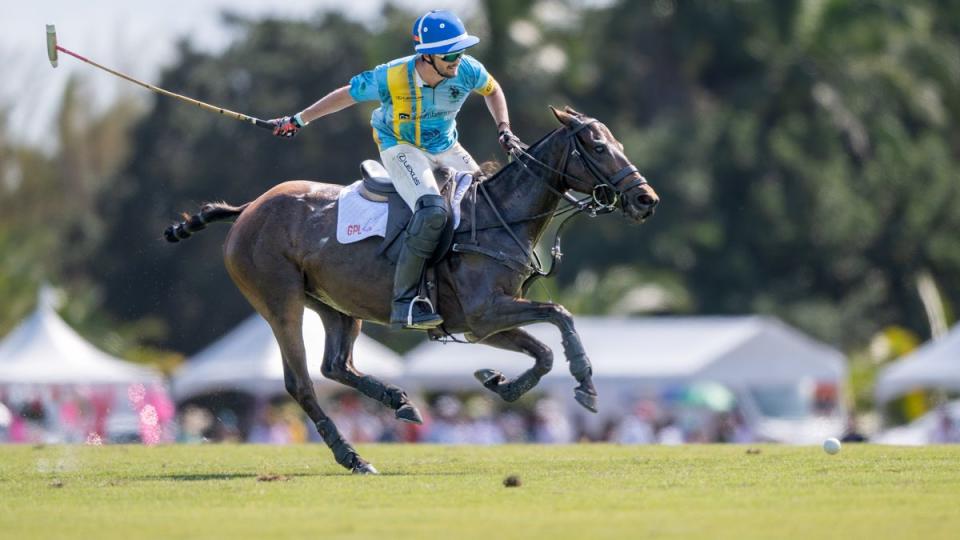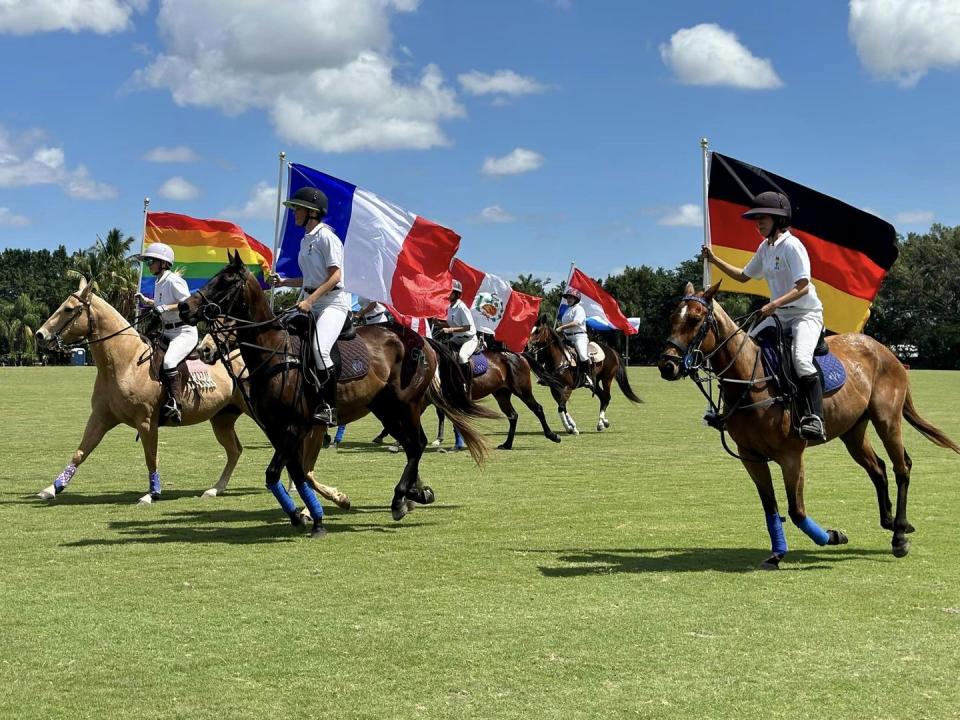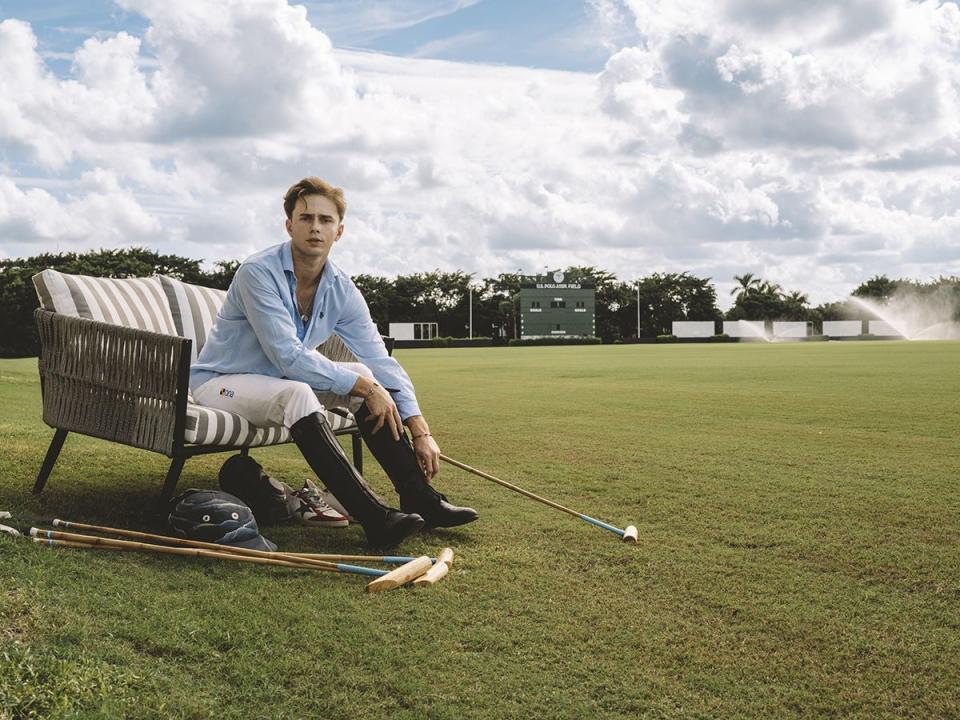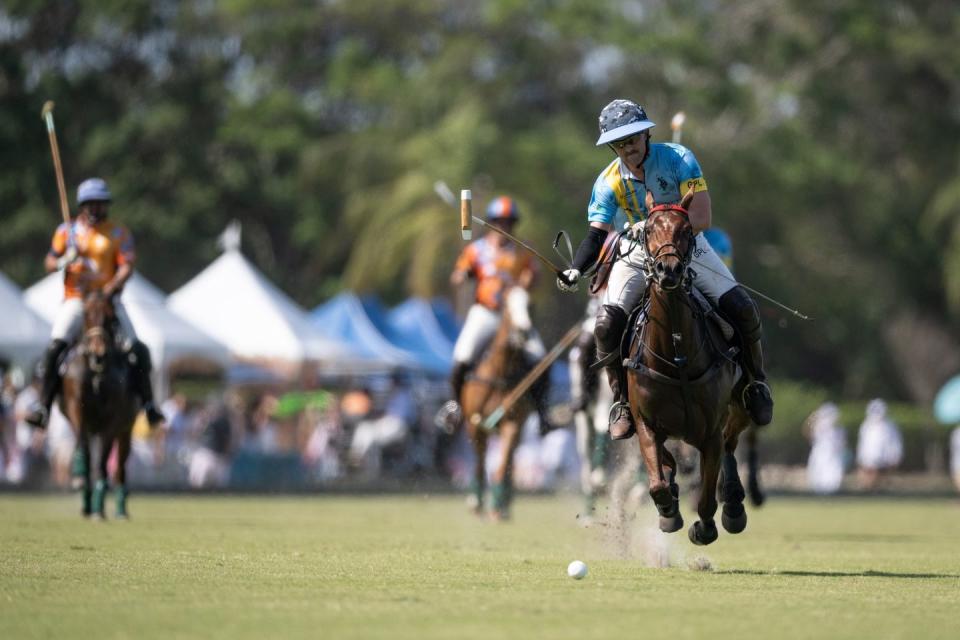The Rise of the Gay Polo League

It was 2006 when entertainment and sports branding agent Chip McKenney, 50 at the time, started to look for new hobbies. After devoting years to individual sports such as showjumping and skiing, the longtime Angeleno found his way into polo almost by accident, hearing by word of mouth that lessons were available in Santa Barbara. He made the drive north up the Pacific Coast Highway, saddled up, and within minutes was hooked.
“Literally right in the middle of the lesson, I told the instructor, ‘I’m going to start a gay polo league,’” McKenney says. “On the way home, I called two friends and invited them to join me next time.”
Two friends became 10, 10 became 20, and a few months later McKenney ended up creating the Gay Polo League, a 501(c)(3) whose mission is “to inspire and empower [LGBT individuals] via the promotion of and participation in the sport of polo.”

McKenney knew he’d love the equestrian aspect of polo—but the camaraderie he found in polo, being a team sport, was a surprise. “I was a sports-crazy kid who never saw and therefore didn’t believe that team sports were available to gay people,” McKenney says. “And polo is a perfect sport for gay people—it’s beautiful, the horses are magnificent, and you can travel anywhere in the world and play it.”
Several of the sport’s professionals—including rising star Agustin Arellano, and Andrés “Lala” Laplacette—have come out of the closet. Last summer, it was impossible not to be swept up in the romance of the Amazon Prime film Red, White and Royal Blue, which features a spicy tack room scene between its two leading gentlemen. And this year marks the GPL’s biggest leap forward yet.
It begins with a change of scenery: the league’s flagship April tournament in the elite equestrian community of Wellington, Florida moved from the U.S. Polo Association’s National Polo Center to the privately owned Patagones Polo Club. While playing at the sport’s most public and institutional North American venue certainly brought visibility to the GPL’s cause over the years, the move to Patagones signaled that the world of polo is becoming more accepting of its LGBTQ players. Public arenas are one thing; but bringing queer players into exclusive echelons of the sport is another.

“It’s a huge move for us,” says McKenney. “Patagones is a club that doesn’t hold public events, so it’s a space that most spectators and even players would never get to see.”
A new partnership with the Elton John AIDS Foundation will elevate the league’s philanthropic efforts, too. It is the Foundation’s first partnership in South Florida, and funds raised at the GPL tournament’s Friday night “Wigstock” party will go towards the Rocket Fund, the Foundation’s campaign aimed at doubling its efforts against AIDS worldwide. “We hear from a lot of well-intentioned groups, and we try to evaluate the most innovative ones, but we were really impressed by Chip’s work over the years,” said Lucretia Gilbert, the Foundation’s Chief Philanthropy Officer. “People that galvanize for change in a positive way are something we celebrate.”
McKenney continues to spread the good, gay word far and wide. He’s adding a second tournament to the GPL’s roster this summer in Kentucky, and growing the league’s international presence, too. Last year, the GPL took its members to competitions in Saint-Tropez, England and Argentina, and this year’s Wellington tournament will feature players from eight different countries.

Most importantly, McKenney underscores that all GPL events are “inclusive, not exclusive,” and that its membership includes both LGBTQ persons and their heterosexual allies. “Endorsements seem to be heard louder if someone from outside our community also commits to our cause, so that’s why we welcome everybody,” said McKenney. “It’s important that people understand that our community is a spectrum, but that we are also very serious athletes.”
It’s not merely a diverse mix that shows up and turns out at the GPL’s tournaments, but a competitive one, according to Arellano. “I usually go into a gay polo match thinking it will be pretty chill, however it always ends up being intense because everybody really wants to win,” says the 26-year-old player.
But even for those who don’t take the tournament’s top prize, showing up is still something of a victory—the Gay Polo League is still the only organization of its kind in the world, providing opportunities for both professional and amateur players to compete.
“I didn’t have any gay professional polo players to look up to when I was coming up,” says Arellano. “I don’t think being gay is my whole identity but I’ll 100% carry that torch if it means moving the sport forward."
You Might Also Like

 Yahoo Sports
Yahoo Sports 
